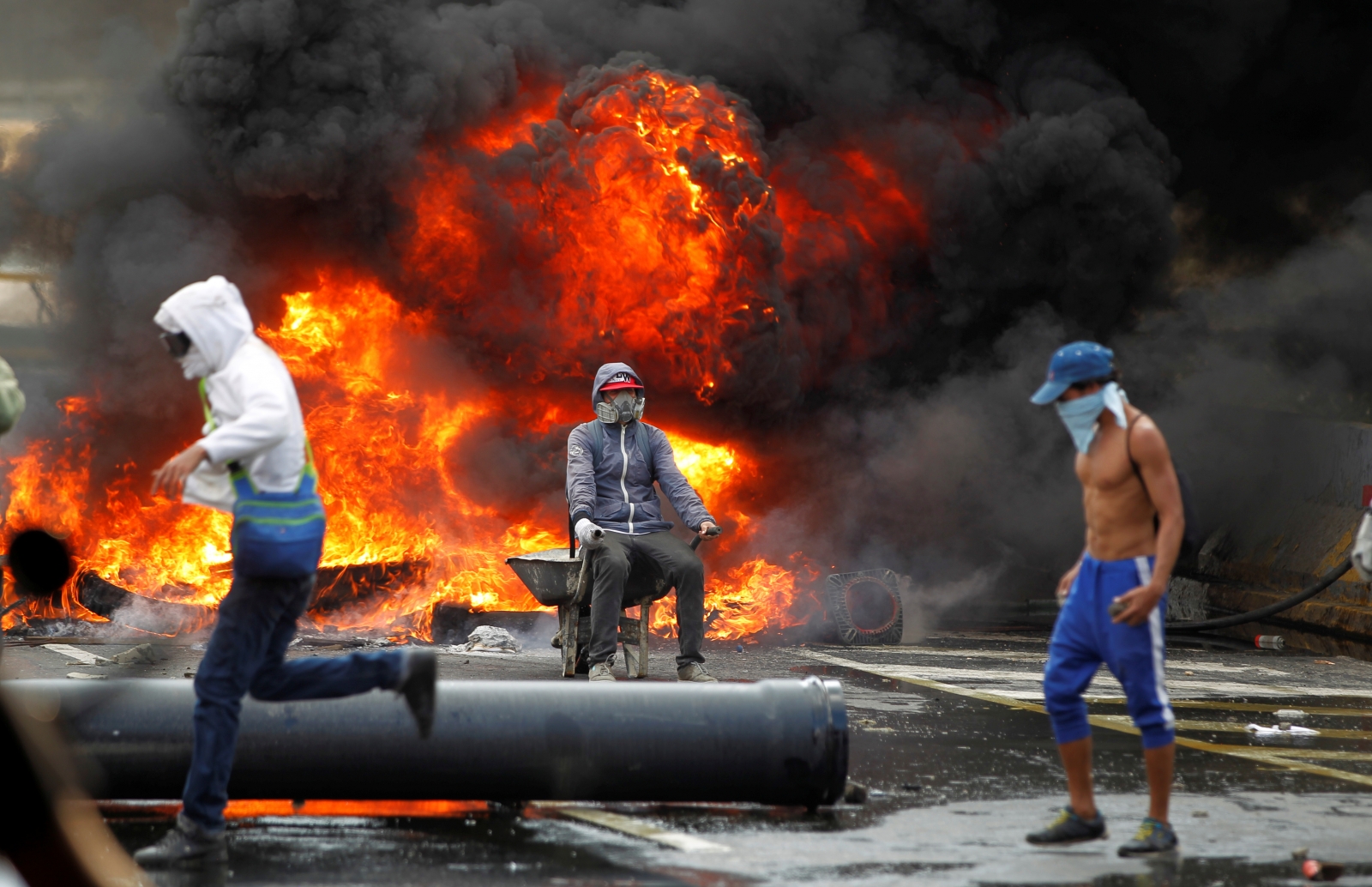2 more protesters killed in Venezuela clashes as demonstrations enter fourth week
Overall 12 protesters have been killed in the deadly protests since April.
Two more people were killed by unidentified gunmen in Venezuela as protesters clashed on Monday (24 April). Over the past three weeks 23 have died across the country in massive demonstrations being held by pro and anti-government protesters.
The latest casualties came on a day when demonstrators against President Nicolas Maduro's government blocked major roads in the Latin American country to pressure the government to hold early elections.
Several people suffered serious injuries and are "between life and death", public defender Tarek Saab said.
One of the victims of Monday's clashes was a 42-year-old government worker in the Andean State of Merida. He died after he was shot in the neck while rallying in favour of the government, Reuters reported, citing the prosecutor's office.
The second victim, a 54-year-old man, died from a gunshot to the chest in the western Venezuelan state of Barinas. It was not immediately known whether he was a pro-government supporter or anti-Maduro.
Henrique Capriles, one of Venezuela's main opposition leaders and Governor of Merida state tweeted on Monday and accused "paramilitary groups" of killing the two men.
So far, at least 12 people have died in the protests since the start of April. However, 11 other died in El Valle area of Caracas between 20 and 21 April, when a bakery was being robbed and a high-voltage electric line fell on them.
This is the fourth week that the country is witnessing a political upheaval and millions of citizens are calling on Maduro – who has been accused of ruling the country like a dictator – to step down.
Monday's protests were largely peaceful until mid-afternoon, following which some skirmishes broke out, which led to the shootings.



Protesters wore yellow, blue and red – colours of the Venezuelan flag – clothes as they marched and chanted: "This government has fallen!"
They held signs that criticised inflation, crimes and shortage of food and aid supplies in the country.
"In the morning they seem peaceful, in the afternoon they become terrorists and at night bandits and killers," Socialist Party official Diosdado Cabello said as he accused the opposition for the unrest. "Let me tell them straight ... Nicolas [Maduro] is not going."
Tensions have been running high in the oil-rich nation especially after the Supreme Court stripped the opposition-dominated National Assembly of its powers on 29 March.
The move sparked massive protests and widespread international condemnation, which pressured the top court to reverse its decision on 1 April.
© Copyright IBTimes 2025. All rights reserved.





















